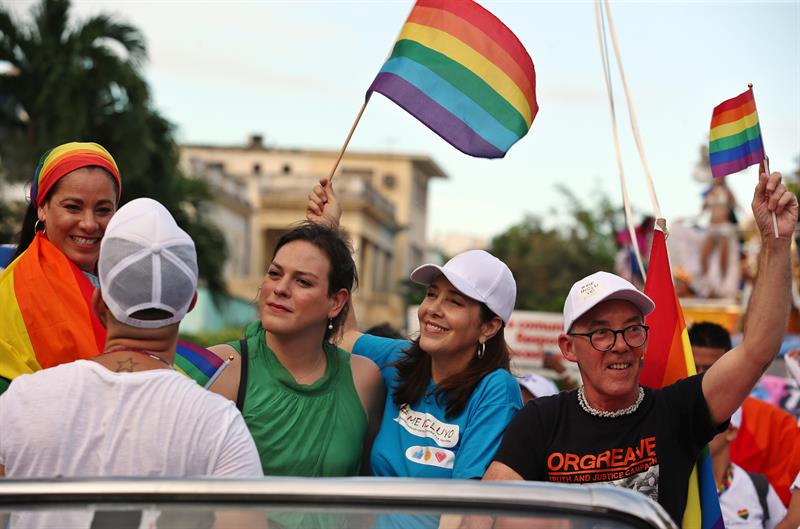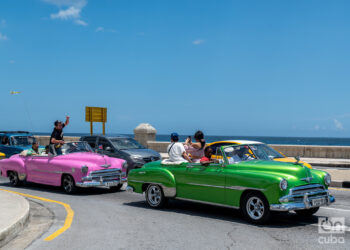A few days before the Cuban Conga against Homophobia and Transphobia was held in Camagüey (May 11) and in Havana (May 17), a 12-year tradition, the National Center for Sex Education (CENESEX), which is headed by Cuban MP Mariela Castro, daughter of former President Raul Castro, issued a note announcing that these demonstrations will not be held this year on the instructions of the Ministry of Public Health.
The causes for this decision, as they are presented, are: “the current situation the country is experiencing” and “certain circumstances that do not help its (the Conga’s) successful development.”
CENESEX adds that “the new tensions in the international and regional context directly and indirectly affect our country and have tangible and intangible impacts on the normal development of our daily life and on the implementation of the Cuban State’s policies.”
This is the first time this event has been suspended. It had become a tradition since it was held for the first time 11 years ago.
It is also a novelty that a kind of exceptional state, caused by the crisis in Venezuela and the new U.S. pressures against Cuba has been ambiguously invoked, although these causes are not mentioned explicitly.
While this is happening, the International Tourism Fair is being inaugurated today in Havana, and the 13th Havana Biennial is being held for a month until May 12 under the slogan “The Construction of the Possible.” Also on May Day, the traditional parade was held for Workers’ Day, which involved a large mobilization and the deployment of logistics and resources.
In its note CENESEX does not rule out that next year the Conga will resume, which is the annual event involving the biggest participation and visibility for the fight against Homophobia and Transphobia.
The doctor and activist for LGBTIQ rights and protection against HIV Alberto Roque rejected in his Facebook account the decision and denounced a background that recalls the recent process of discussion of the new Constitution where different sectors of society were divided, and that finally influenced the elimination of article 68 that directly opened the doors to same-sex marriage in Cuba.
“The fundamentalist evangelical groups in Cuba are getting a new reward from the Cuban government with the suspension of the Conga against Homophobia,” wrote Roque.
On the other hand, journalist and LGBTIQ activist Francisco Rodríguez Cruz wrote on his blog that this decision “goes beyond” the Organizing Committee of the Commemoration Days, and accepts that it is “a fact that we can no longer remedy.”
Rodríguez gives a dialectical explanation by saying that “we never hoped that a process of cultural transformation as profound as the dismantling of homophobic and transphobic prejudices so rooted in our society would lineally take place without contradictions and even stagnation or setbacks, as this adjustment to the program could seem to many people.”
With this analysis, Rodríguez Cruz provides a “cultural” ―homophobic― explanation to the decision, an aspect that the CENESEX note does not recognize absolutely, according to which it is only a matter of situation and circumstance.
The journalist who has his Paquito el de Cuba blog, considers, however, the suspension of the Conga as a “circumstantial blunder” and adds that he “is sure that nothing and nobody can put us back in the closet, nor do I want to nor can I believe that someone wants that.”

In 2018 the Conga had been moved from the area of La Rampa and the surrounding areas of the Cuba Pavilion, very full of offices, hotels and tourist spaces, to a more residential area, on Línea Street, also in Vedado.
On that occasion it became a demonstration where not only the LGTBIQ community participated, but also many neighbors, heterosexual persons, on the street or from balconies and portals
“Before there were prejudices to talk about these issues. Eleven years ago we started to work on the Day Against Homophobia and Transphobia and that helped a lot to create dialogue scenarios among the population,” Mariela Castro commented in 2018.






















